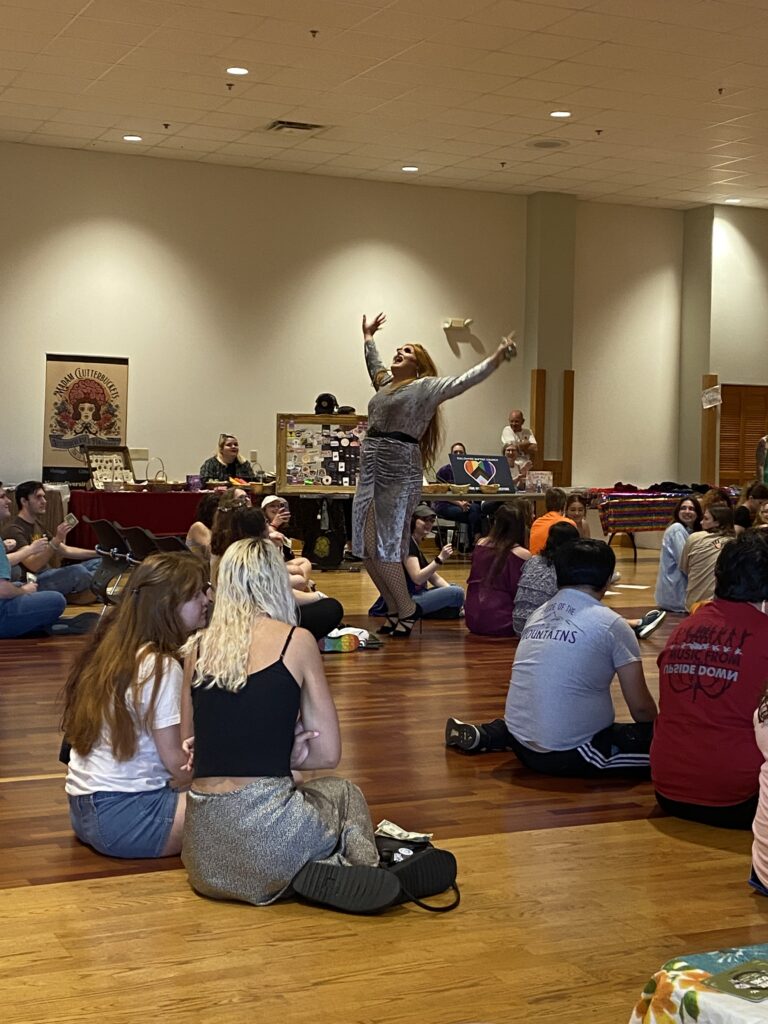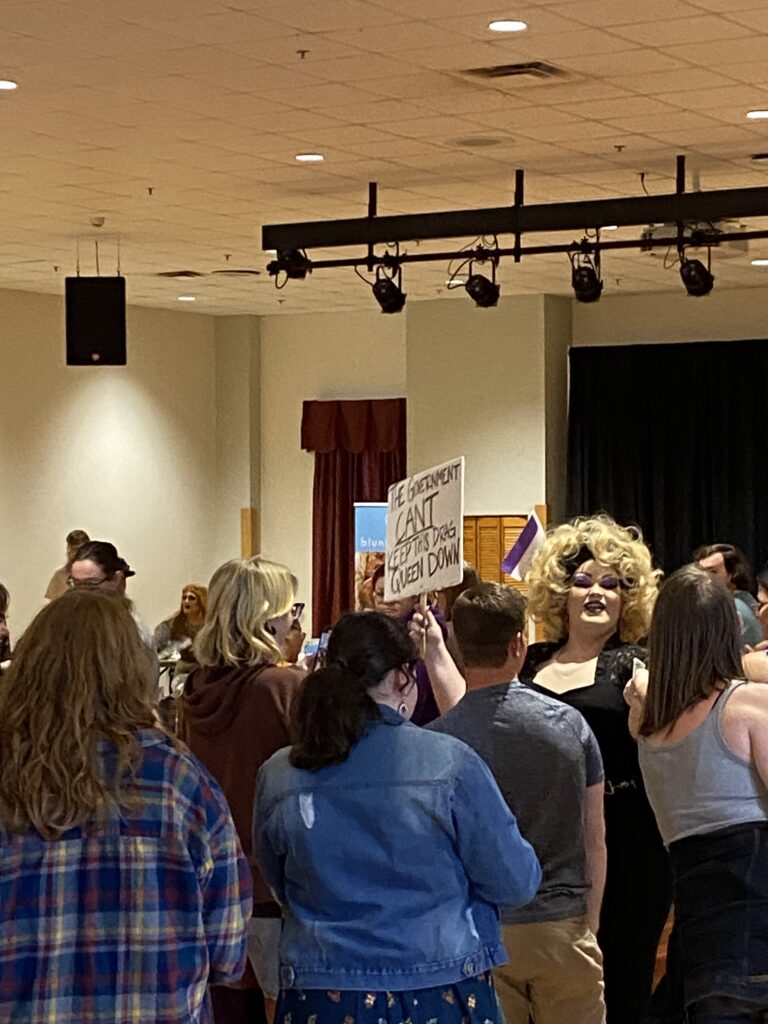Story originally published in The Western Carolinian
Western Carolina University’s Sexuality and Gender Alliance (SAGA) held their annual pride celebration Sunday, April 16 in the University Center following inclement weather.
The celebration involved multiple vendors local to the Sylva and Asheville area and clubs at WCU that provide safe spaces, children’s story hour, adult story hour, BIPOC (Black, Indigenous, and People of Color) story hour and a drag show with local drag queens including the Sylva Belles.
This celebration has been considered incredibly important this year with many bills in the U.S. targeting LGBTQ+ youth.

According to translegislation.com, in 2023 alone, 497 bills have been proposed in 49 states that remove student confidentiality with school staff, restrict trans people from receiving medical care related to gender affirmation and remove the ability for trans athletes to compete
with the gender they identify.
In North Carolina, Senate Bill 560 and Senate Bill 639, titled the “Medical Treatment for Minor’s Act” limit access to gender-affirming care to minors. Neither bill mentions gender treatment for children born intersex, which is still allowed.
North Carolina has also introduced Senate Bill 631 and House Bill 574, titled the “Fairness in Women’s Sports Act” which ban female transgender student athletes from competing on female sports teams.
In 2023, we have also seen state bills limiting and outlawing drag. Drag is a form of expression in which someone dresses, usually, as the opposite gender to perform. Tennessee has created the first explicit ban to public drag shows, categorizing drag as “adult cabaret performances.”
Other states have banned allowing minors to attend drag shows or drag story times. Though some drag shows can be explicit, nearly all are very careful in making sure age limits are appropriately set based on the content of the performances.
In a time of crisis for some, Madame President of SAGA (who wishes to remain anonymous) says events like the pride celebration are important for students.
“An event like this is supposed to be a safe place where people feel they are educated with what matters to the community and that they are loved and supported and have fun,” she said.
The queens performing at the event spoke out in their performances. Some wore dresses with trans pride colors on it and carried pride flags. Bayleigh Katch, one of the queens performing, carried an asexual pride and transgender pride flag while holding a sign that said, “the government can’t keep this drag queen down.”

Outside of the pride celebration, SAGA still supports all members of campus even if they are not a part of the club.
“If you are queer, you have somebody in your corner even if you don’t think you do … not every queer person may be in SAGA, but SAGA has to look out for and support every queer person on this campus and we do it happily,” the president of the club said.
Resources for LGBTQ+ individuals on or near campus include SAGA, Intercultural Affairs and Sylva Pride. Additionally, areas on campus, such as a professor’s office or on-campus department, displaying either a rectangular pride flag or triangular pride gradient with the words “SAFE ZONE” or “Bi+ Certified” show that a faculty member has undergone Safe
Zone training with Intercultural Affairs.
According to Safe Zone website, they provide “training, support, resources, and a network of allies who are committed to enhancing the campus and local community’s understanding of gender and sexuality.” Safe Zone provides resources to educate about the LGBTQ+ community and individuals displaying the Safe Zone training often can help be a valuable resource for queer students, or at least a resource to turn to.
ACLU is mapping LGBTQ+ legislation across the country and The Trevor Project provides many additional resources for LGBTQ+ individuals, particularly youth struggling with their identity and mental health. Additionally, GLAAD – the world’s largest Lesbian, Gay, Bisexual, Transgender and Queer (LGBTQ) media advocacy organization also has plenty of resources for help. Additional LGBTQ+ information and resources can be found online.


